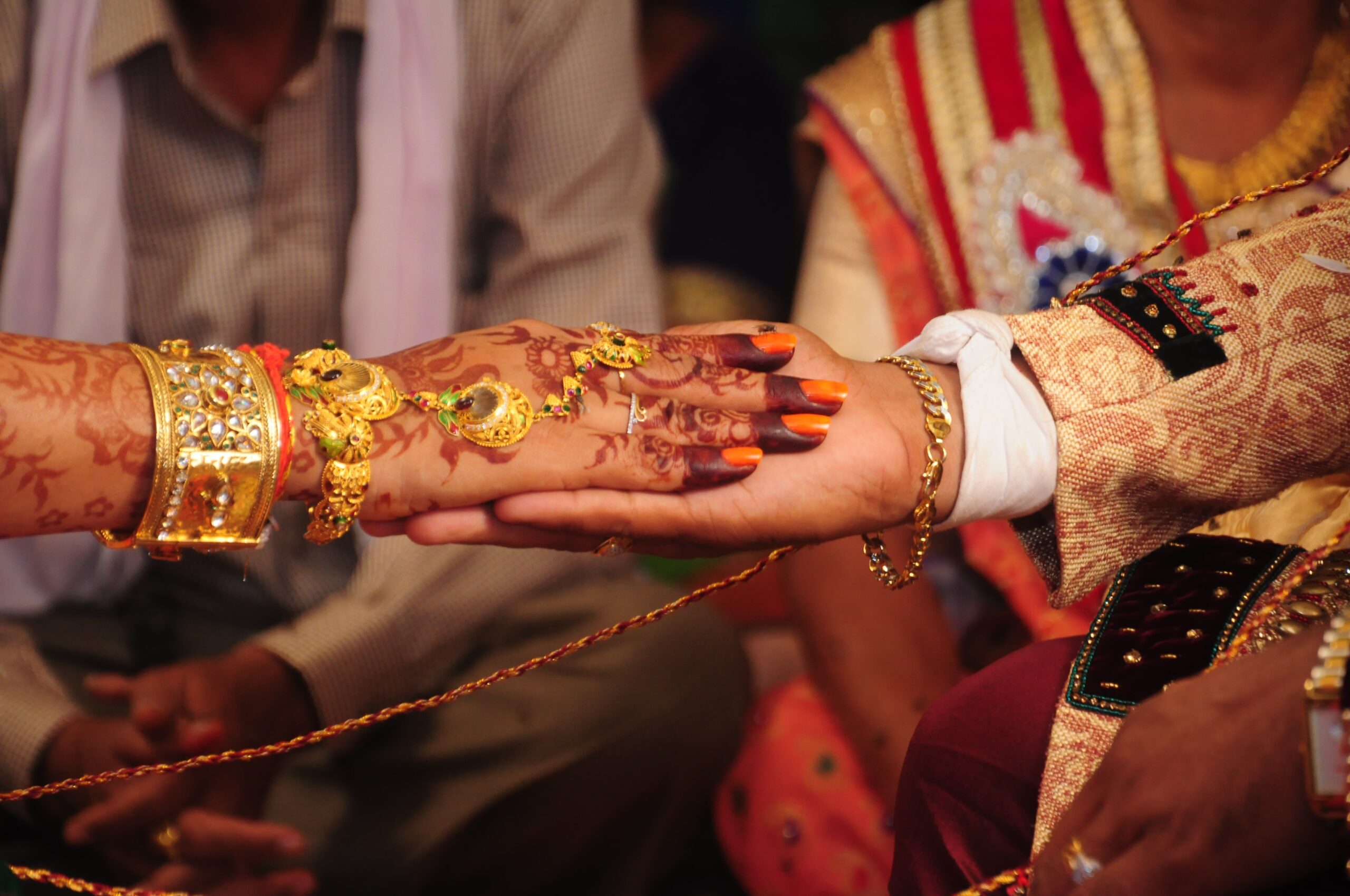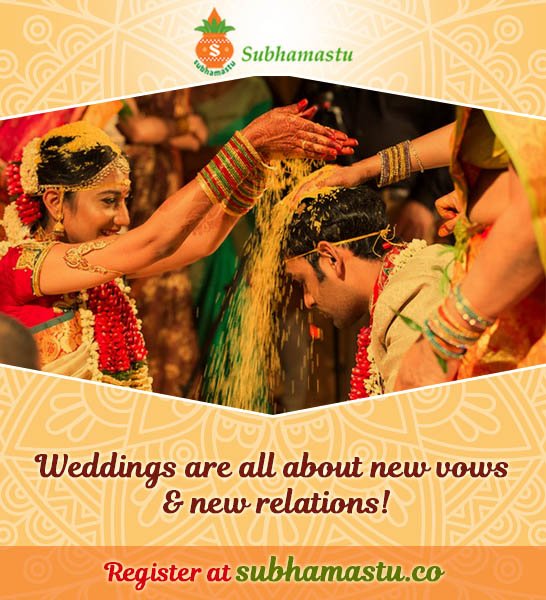The event of “Thalambaralu” (holy rice mixed with saffron and turmeric) is quite vital in the marriage process, which the groom would first pour on the bride’s head, hoping for the family’s progress and development, and seeking smart and intellectual children. Conceding with and honouring the groom’s wish, the bride would lower her head and pour thalambaralu on the groom’s head, seeking the resources needed to raise the children in the form of bumper crops and livestock. In exchange, the bridegroom throws sacred rice, hoping to offer his better half the capacity to manage financial resources prudently. Both partners would continue to cause ‘thalambaralu’ to flow, desiring and aiming to live in connivance and support, with sacrifice, affection, prosperity, and good health. This act will liven up the atmosphere, enthralling the guests and making them smile.
In India, rich culture has bestowed upon successive generations different acts and occupations, each of which is supported by scientific reasoning, allowing civilians to accomplish conventional and reasonable growth in their lives and families. Years of efforts by saints and sages with limitless intellectual wisdom resulted in this philosophy. Though the institution of marriage, a powerful institution in Indian society, has undergone certain changes throughout the years, we must realise its essence and seek to protect and pass it on to future generations. Every wedded pair is regarded as celestial beings by the Vedas.
The intrinsic essence of marriage is the same regardless of the area in India. The goal is to foster the development of understanding and warmth, and to transform marriage into an undeniable relationship that cannot be severed, allowing the couple to generate happiness in their lives and to shoulder obligations wisely, leading to their execution. The Indian institution of marriage is a strong framework created by educated men and sages to offer their offspring a pleasant way of life.
Subhamastu is a matchmaking website for Kamma caste people. Kamma is a Hindu community predominantly found in Andhra Pradesh and Telangana. They speak Telugu. Eligible marriage seekers can register their biodata on a Kamma matrimonial website to find a suitable match within the Kamma community.




